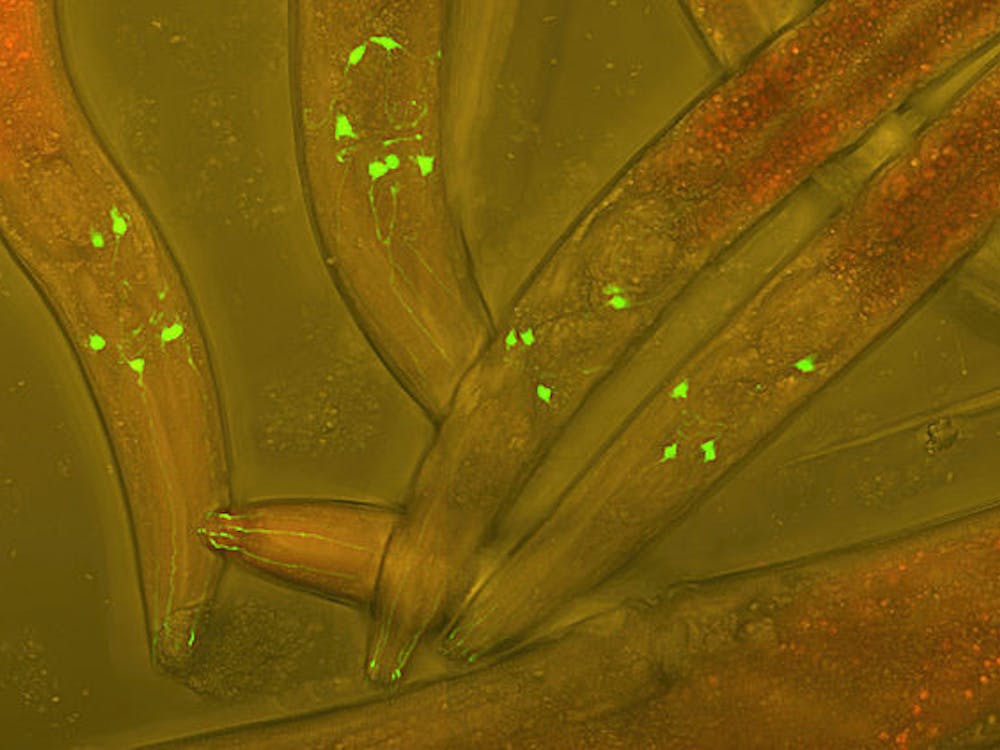One of the newest student groups on the Hopkins campus, Students for the Exploration and Development of Space (SEDS) is a club meant to promote student interest in space and provide networking opportunities, project experience and career exploration in any discipline of the field.
Senior and president of the organization Lindsey Wiser described the club as an “over-arching space organization.” She explained how the club is mainly meant to provide space-enthusiasts like herself an outlet for further learning and experience with space-related teams and projects, opportunities that seemed missing from campus during her freshman and sophomore years.
In addition to lectures from professionals in the industry at general-body meetings and organized field trips, SEDS currently has four major student teams meant to cover different disciplines within the space industry: CubeSat Design Project, the Space Policy Team, the Asteroid Search Team and the Telescope team.
The CubeSat program was designed to facilitate undergraduate space exploration — teams are given the opportunity to work with industry professionals and design, build and launch small satellites called CubeSats into space.
This year, SEDS looks to partner with members of the industry in the Baltimore area to start a long-term project to launch a satellite that will orbit earth.
“Hopkins has a lot of space resources and connections that students just don’t know about,” Wiser said. “A CubeSat would be a good way to help students tap into those resources, such as APL [Applied Physics Laboratory], STScI [Space Telescope Science Institute] and proximity to NASA.”
The Space Policy team is meant to provide students with opportunities to not only write about and discuss current topics in space exploration and space policy, but also attend conferences and hearings related to space policy in Washington D.C.
The Asteroid Search Team uses space data provided by the International Astronomical Search Collaboration (IASC) to find and record the discovery of new asteroids. The IASC hosts campaigns for teams of students around the world to find asteroids with provided data and software; teams look through given photos and report to the IASC if they find anything that may potentially be a new asteroid.
The Telescope team is meant to give students the opportunity to use the Bloomberg telescope. Students learn how to use the telescope and attend the telescope open house nights at Bloomberg on Fridays.
While there are currently four established teams, Wiser hopes that more teams will form under the organization, as the club is meant to foster all types of opportunities for students to get involved in space exploration.
“We’re just here to provide a space for anyone who is excited about space exploration from any standpoint to come in and start a project,” Wiser said.
Wiser currently leads three of the four teams, although she hopes to pass on leadership roles this year as club membership grows.
In addition, the club will be holding info sessions on potential fellowships for undergraduate students interested in space research and exploration, such as the Brooke Owens Fellowship and Matthew Isakowitz Fellowship, where recipients are connected with paid summer internship opportunities within the flight and space industries.
Wiser, who is a 2019 Brooke Owens fellow, interned at the Smithsonian Air and Space Museum in the center for earth and planetary studies last summer as part of her fellowship. There, her main research was on Enceladus, one of the moons of Saturn.
Overall, Wiser encourages all students with any kind of interest in space to join SEDS, as there are opportunities in the club for students of all majors. She believes that nearly anyone can enjoy and benefit from learning more about space and the exploration of it.
“There’s so much out there that we don’t know and understand,” Wiser said. “Space has the ability to inspire people like a lot of other things don’t. It encourages people to ask questions… Regardless of what their background or beliefs are, pretty much anyone can get excited by the idea of space exploration.”




